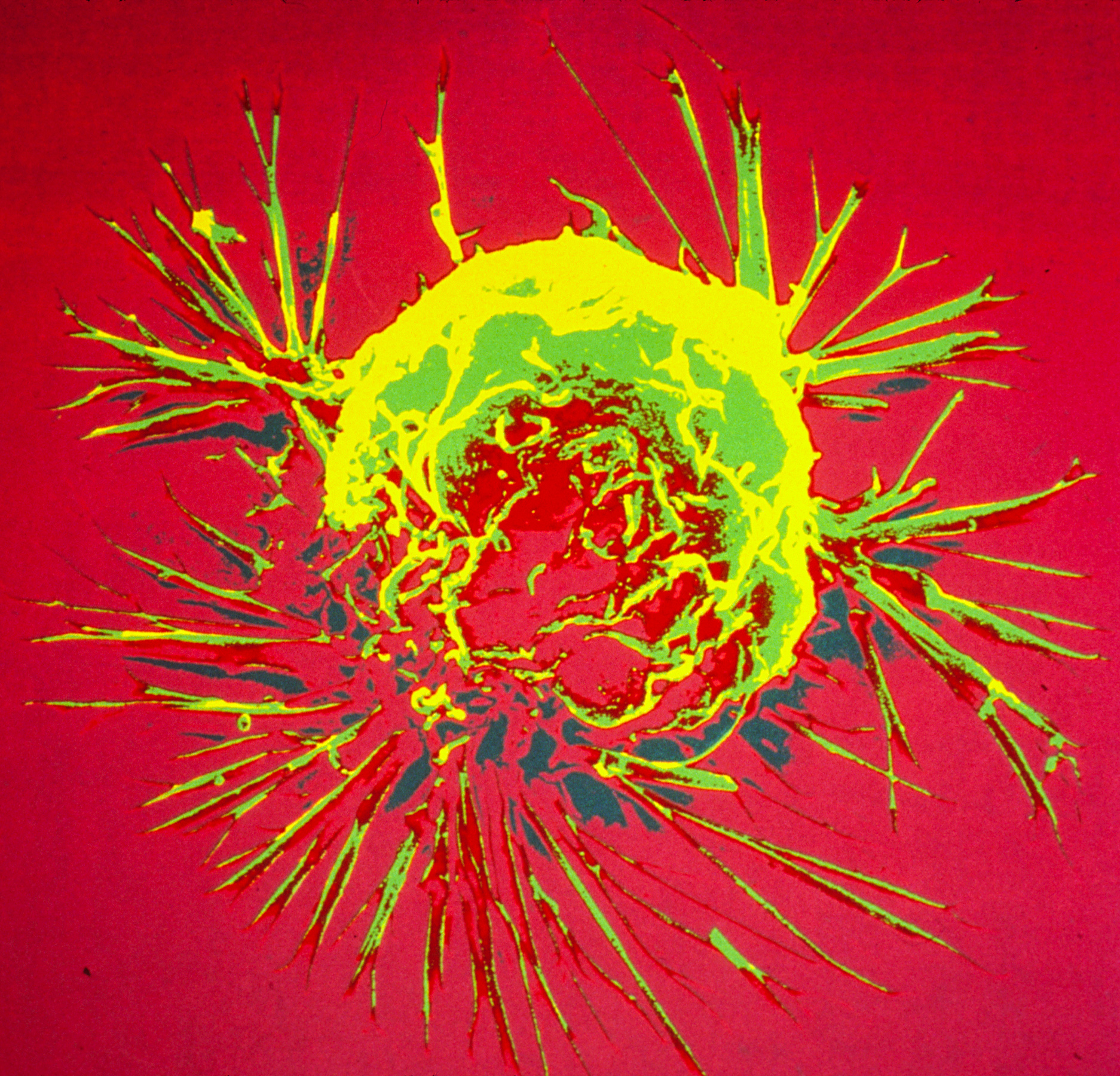A gene normally involved in sperm and egg formation may have a role in the development of some breast cancers, through driving cells to become genetically unstable, new research reveals.
The study gives the first direct experimental evidence that when the gene, called HORMAD1, is active in cells outside of the testis and ovaries it causes genetic instability, a hallmark of cancer.
HORMAD1 turns off accurate DNA repair during sperm and egg development as a means of creating genetic diversity between parents and offspring – but this study shows that in other situations it switches off accurate DNA repair and causes genetic instability that can lead to cancer.
The study, led by researchers at The Institute of Cancer Research, London, and King’s College London, provides a potential clue for how to treat some patients with a type of breast cancer called triple-negative, which has low survival rates.
The research was funded by Breakthrough Breast Cancer, and is published in Cancer Discovery.
Researchers conducted a series of painstaking experiments, involving analysis of patterns of mutation and gene messages in breast cancers. They found that active HORMAD1 seems to drive a reduction of more than 50% in accurate DNA repair in cancer cells – with cells containing active copies of the gene favouring a messier and less effective form of DNA mending.
This led to some genes being duplicated and some deleted – creating an imbalance in the number of gene copies that gave a characteristic mutation 'scar', which could be read across the human genome in breast cancer DNA.
The researchers went on to show that triple-negative breast cancer cells expressing HORMAD1 were vulnerable to existing drugs – including platinum-based chemotherapies and PARP inhibitors.
PARP inhibitors are known to be effective in some cancers with defective DNA repair systems, including mutations to the BRCA genes.
The study suggests that HORMAD1 could be used to detect cancers that might be susceptible to these treatment types, although further work is required to clarify this.
Study leader Professor Andrew Tutt, Director of the Breakthrough Breast Cancer Research Centre at the ICR and Professor of Oncology King’s College London, said: “Our study with Dr Anita Grigoriadis at King’s College London shows for the first time that a gene usually expressed in the testis and ovaries can drive genetic instability of triple-negative breast cancer.
"It’s a very intriguing gene – its usual job is to cause a switch between DNA repair processes during sperm and egg development in order to drive natural genetic differences between us and our parents. But HORMAD1 used out of context seems to turn off accurate DNA repair and is a big problem in normal cells – because it can make them cancerous.
“We also showed that triple-negative breast cancer with active copies of this gene seems to respond to treatment with platinum-based chemotherapy. If future clinical trial analyses confirm this, that could open up new options for women with this particularly difficult-to-treat disease.”